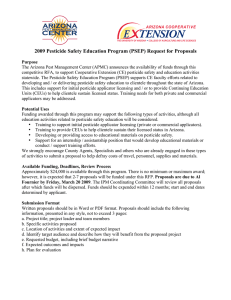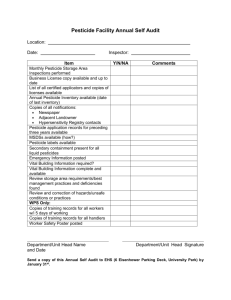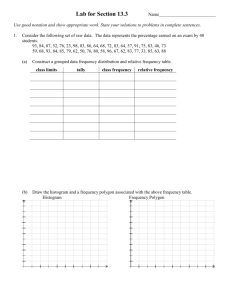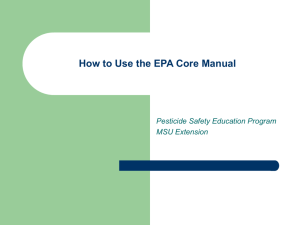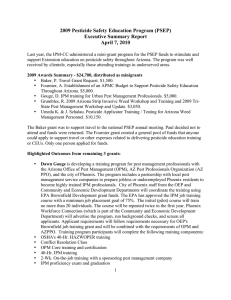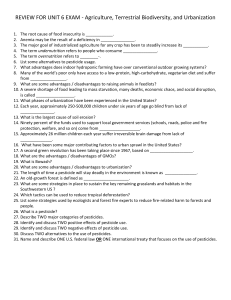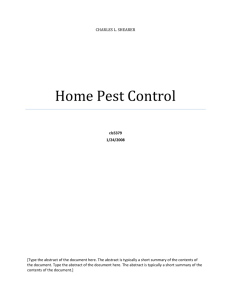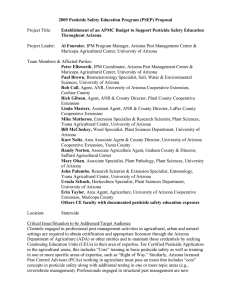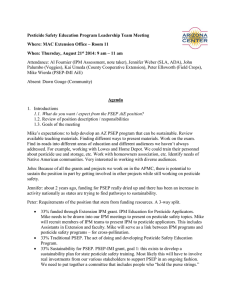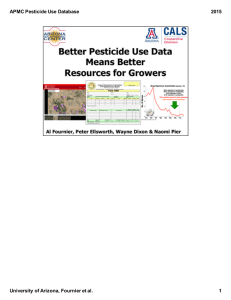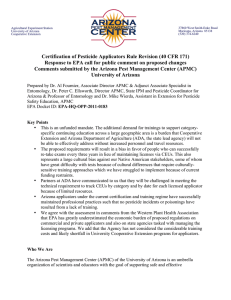2010 Pesticide Safety Education Program (PSEP) Request for Proposals
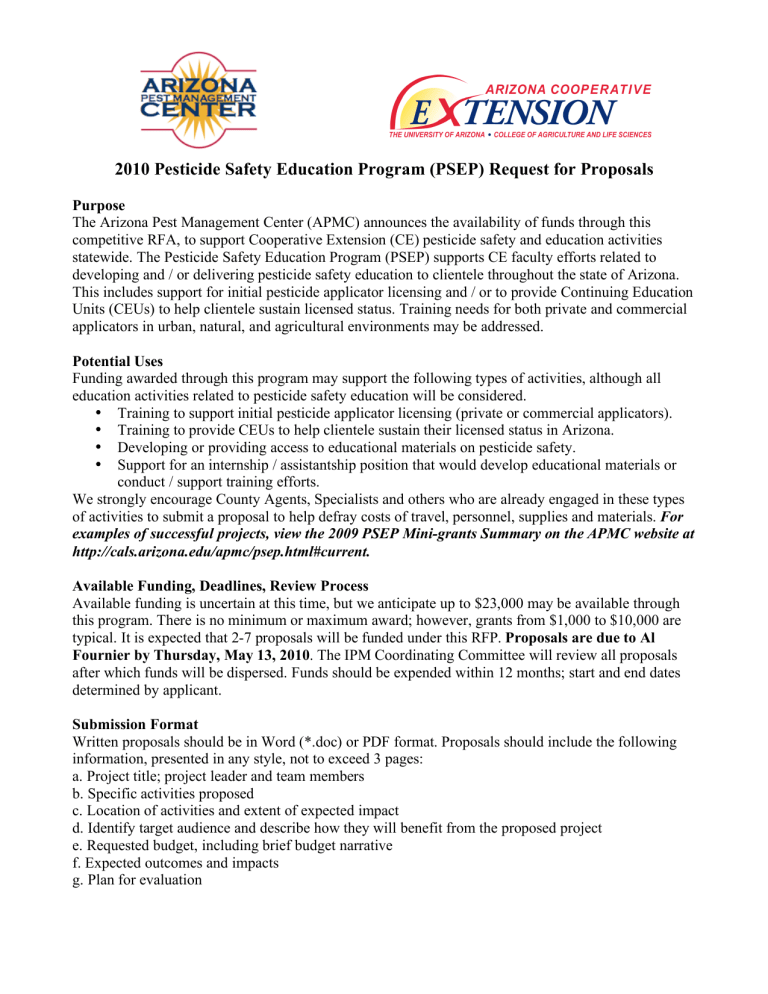
2010 Pesticide Safety Education Program (PSEP) Request for Proposals
Purpose
The Arizona Pest Management Center (APMC) announces the availability of funds through this competitive RFA, to support Cooperative Extension (CE) pesticide safety and education activities statewide. The Pesticide Safety Education Program (PSEP) supports CE faculty efforts related to developing and / or delivering pesticide safety education to clientele throughout the state of Arizona.
This includes support for initial pesticide applicator licensing and / or to provide Continuing Education
Units (CEUs) to help clientele sustain licensed status. Training needs for both private and commercial applicators in urban, natural, and agricultural environments may be addressed.
Potential Uses
Funding awarded through this program may support the following types of activities, although all education activities related to pesticide safety education will be considered.
• Training to support initial pesticide applicator licensing (private or commercial applicators).
•
Training to provide CEUs to help clientele sustain their licensed status in Arizona.
• Developing or providing access to educational materials on pesticide safety.
• Support for an internship / assistantship position that would develop educational materials or conduct / support training efforts.
We strongly encourage County Agents, Specialists and others who are already engaged in these types of activities to submit a proposal to help defray costs of travel, personnel, supplies and materials. For examples of successful projects, view the 2009 PSEP Mini-grants Summary on the APMC website at http://cals.arizona.edu/apmc/psep.html#current.
Available Funding, Deadlines, Review Process
Available funding is uncertain at this time, but we anticipate up to $23,000 may be available through this program. There is no minimum or maximum award; however, grants from $1,000 to $10,000 are typical. It is expected that 2-7 proposals will be funded under this RFP. Proposals are due to Al
Fournier by Thursday, May 13, 2010 . The IPM Coordinating Committee will review all proposals after which funds will be dispersed. Funds should be expended within 12 months; start and end dates determined by applicant.
Submission Format
Written proposals should be in Word (*.doc) or PDF format. Proposals should include the following information, presented in any style, not to exceed 3 pages: a. Project title; project leader and team members b. Specific activities proposed c. Location of activities and extent of expected impact d. Identify target audience and describe how they will benefit from the proposed project e. Requested budget, including brief budget narrative f. Expected outcomes and impacts g. Plan for evaluation
Evaluation Criteria
Proposals will be judged by the following criteria:
1. Relevance of the project to and identified group of potential users (25 pts).
2. Clarity and appropriateness of the proposal (25 pts).
3. Potential impact for addressing an important pesticide issue or education need in the state (25 pts).
4. Backgrounds and qualifications of project leader and team members in relation to the project objectives and appropriateness and degree of collaboration (10 pts).
5. Feasibility of completing the project within the proposed time frame and budget (10 pts).
6. Logic and feasibility of the plan for project evaluation; does it include measurable indicators of project success? (5 pts)
Final Report
Successful applicants must submit a Final Report to Al Fournier by March 1, 2011. Data will be included in a federal report submitted to the national PSEP program. Your report should indicate progress on achieving project goals, outline project outcomes and impacts using appropriate quantitative and/or qualitative indicators (e.g., number of people trained or impacted), and quantify any leveraged resources that contributed to the project.
